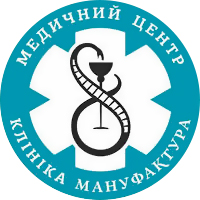Hematologist
Consultation with a pediatric hematologist for the diagnosis of hematologic disorders and evaluation of symptomatic blood parameter changes resulting from other chronic conditions in a child. This includes establishing an accurate diagnosis, prescribing effective treatment, and providing ongoing monitoring for children with hematologic pathologies.
Consultation with a pediatric hematologist
Parents typically consult a pediatric hematologist for three main reasons:
- 1.Symptoms of anemia. In addition to physical weakness, fatigue, and pallor of the skin and mucous membranes, anemia is indicated by decreased hemoglobin levels and a reduced red blood cell count on blood test results.
- 2.Unexplained or disproportionate bleeding. This may include spontaneous gum or nosebleeds, or excessive and prolonged bleeding from minor cuts or injuries that seems disproportionate to the trauma, often accompanied by a low platelet count on blood tests.
- 3.Enlarged lymph nodes. Enlargement of a single lymph node, a group of nodes in one area, or generalized lymphadenopathy involving multiple regions, with or without other accompanying symptoms.
A hematologist is a physician who diagnoses the causes of hematopoietic disorders and lymphatic system dysfunction and treats hematologic diseases.
Who refers a child to a hematologist?
As a rule, the pediatrician is the first doctor to assess a child’s overall health. They can identify signs of hematopoietic system disorders during the child’s medical history review or based on parents’ concerns during the visit.
A referral to a pediatric hematologist is typically based on clinical signs that may indicate a hematologic disorder and on abnormal blood test results.
At Manufactura Clinic, a pediatrician’s referral is not required to book a consultation with a pediatric hematologist. Parents can schedule an appointment directly if they have concerns about their child’s health or notice symptoms that cause worry.
When to see a pediatric hematologist
Parents should seek diagnostic evaluation if they notice any of the following symptoms in their child:
- Pallor or yellowish skin tone, pale gums, inner eyelids, or lips.
- Severe weakness, fatigue, or drowsiness, the child tires easily and shows little interest in physical activity or play.
- Unexplained bruising. Do not dismiss frequent bruises as “just being a child.” If bruises appear repeatedly without clear cause, it is important to rule out a possible hematologic disorder.
- Joint or bone pain. The child may complain directly, become irritable or cry after physical activity, say their legs hurt, or ask to be carried. If this occurs repeatedly, even if it seems like physical exertion was the cause, persistent pain is a reason for further evaluation.
- Any bleeding that is difficult to stop after a minor injury, or bleeding not associated with trauma.
- Enlarged lymph nodes:
- Localized one or two nodes in a single area, non-tender, persisting for 2–4 weeks, or with a firm consistency.
- Generalized affecting multiple regions.
- Supraclavicular nodes even if only one is enlarged.
- Suspicion of a hematologic condition increases when lymph node enlargement is combined with fever, weakness (anemic state), or episodes of night sweats.
- Persistent fever without signs of infection.
The results of a child’s complete blood count (CBC) and leukocyte differential are extremely helpful for the first visit to the doctor.
What to expect during a pediatric hematology consultation: what the doctor evaluates
To establish an accurate diagnosis, the pediatric hematologist conducts a step-by-step clinical evaluation: reviewing symptoms, medical history, and laboratory findings, and ordering additional tests if necessary. What does this look like in practice?
1. Review of the child’s medical history:
- When did the symptoms first appear?
- How have they changed over time?
- Was any treatment provided for these symptoms, and what was the outcome?
2. Review of the child’s life history:
- Course of the mother’s pregnancy and delivery.
- Nutrition, growth and development, past illnesses.
- Family history — whether relatives had similar symptoms or diagnosed hematologic conditions.
- History of allergies or contact with infectious diseases.
3. Physical examination
- The hematologist examines the child, assessing overall physical condition and presenting symptoms.
4. Laboratory blood tests:
- Complete blood count (CBC) including a leukocyte differential.
- Biochemical blood tests.
- Coagulation studies (coagulogram).
5. Additional diagnostic studies, if indicated:
- Ultrasound (US), and in some cases, MRI or CT scans to evaluate the structure and function of the child’s internal organs.
Please note: Hematologic abnormalities in blood test results may represent:
- A temporary condition or an early manifestation of a disease that has not yet been formally diagnosed. This requires further investigation and additional diagnostic tests.
- A manifestation of a disease with a clear clinical picture and established diagnosis that requires treatment.
The pediatric hematologist will evaluate and determine whether the child’s hematologic abnormalities are:
- Congenital or acquired hematopoietic disorders.
- Secondary to another disease or the result of medication use.
To clarify the diagnosis, the pediatric hematologist may also recommend additional diagnostic tests and referrals to other specialists.
Treatment of hematologic disease
By consulting a pediatric hematologist at Manufactura Clinic, you will receive expert evaluation of the underlying causes of abnormal blood test results, an accurate diagnosis, and comprehensive specialized medical care.
We treat:
- Pediatric anemias of any origin including those related to genetic disorders, diseases of the gastrointestinal tract or other organs, or those that developed after an infectious illness.
- Bleeding disorders in children caused by hemophilia (A/B), thrombocytopenia, autoimmune processes, or impaired blood clotting due to medication side effects.
- Hemoblastoses (blood cancers) such as acute or chronic leukemia, as well as Hodgkin’s and non-Hodgkin’s lymphoma in children.
The pediatric hematologist at Manufactura Clinic works in close collaboration with other qualified pediatric specialists within our facility. Our in-house modern laboratory and diagnostic center allow for prompt test results and on-site differential diagnosis. If needed, the child can receive treatment in our 24-hour pediatric inpatient unit, under the care of physicians who have been closely monitoring the child’s health from the very first visit.
Follow-up care with a pediatric hematologist
In addition to obvious symptoms, there are several clinical situations in which a child requires regular follow-up with a hematologist:
1. Hereditary and perinatal risk factors. For example:
- Family history of hematologic disorders.
- Identified genetic mutations or syndromes affecting hematopoiesis, even if asymptomatic at the time of diagnosis.
- Birth from a multiple pregnancy or with Rh incompatibility.
2. Past illnesses or medical interventions, including:
- Effects of chemotherapy, radiation therapy, or transplantation.
- Previous viral infections that may affect the bone marrow (cytomegalovirus, Epstein–Barr virus for example).
- Frequent courses of antibiotics or immunosuppressive medications.
3. Chronic conditions:
- Gastrointestinal diseases affecting nutrient and micronutrient absorption.
- Chronic kidney or liver disease.
- Autoimmune conditions (systemic lupus erythematosus, juvenile arthritis for example).
4. Atypical laboratory findings in the absence of symptoms:
- Incidental findings of low hemoglobin, platelet, or white blood cell counts.
- Elevated ESR or C-reactive protein without signs of infection.
- Abnormalities in the leukocyte differential.
It is advisable to have a preventive consultation with a hematologist before any surgical procedure, as well as to assess a child’s readiness for active sports, in order to rule out potential blood clotting disorders that may otherwise go unnoticed.
The frequency of follow-up with a hematologist is determined individually. The approximate recommended schedule is as follows:
- Children in risk groups (family history or chronic illnesses): once or twice a year.
- After treatment for oncologic or other serious conditions: according to an individualized plan.
- With atypical laboratory findings: repeat evaluations and consultations every 1–3 months.
Please note: Each child’s follow-up strategy may vary depending on the diagnosis and overall clinical picture.
How to prepare for a pediatric hematology consultation?
There is no specialized preparation required before a hematology consultation. However, it is advisable to bring medical documentation that can help the doctor assess your child’s condition and your concerns about symptoms:
- Blood test results: complete blood count (CBC), biochemical panel, coagulation studies.
- Reports from other physicians (pediatrician, infectious disease specialist, gastroenterologist, cardiologist).
- Imaging studies such as ultrasound (US), MRI, or CT scans, if performed. There is no need to undergo these tests in advance without a physician’s referral.
- A list of medications your child is currently taking or has taken recently.
It may also be helpful to:
- Write down any symptoms that are causing concern, noting when they first appeared, how they have changed over time, and whether they may be related to infections or diet.
- List past illnesses and any known allergies.
- Gather family history of hematologic disorders or symptoms.
- Confirm when scheduling the appointment whether the doctor will order blood tests. If so, do not feed your child before the visit (fasting is required for 8–10 hours), but water is allowed (no sweetened drinks, no carbonated beverages, no tea).
Remember, the earlier a condition is detected, the easier it is to treat and manage. Never consider your questions or observations about your child’s health to be excessive a consultation with a doctor is never unnecessary. At the very least, you will gain a better understanding of your child’s health and the conditions it is important to be aware of.
Make an appointment
Your name
Phone number
Direction
Desired date
Comment














